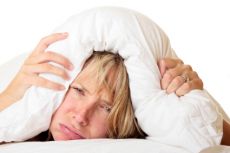Stress-free sleeping Tips for better sleeping!
Have you ever tried sleeping the night before some major exams or the day before some sort of confrontation with an incoming conflict? Do you remember how long it took you to get to sleep, tossing and turning, only to get a few hours of sleep riddled with nightmares of the incoming event. This can all be linked to stress, anxiety and excitement to some extent.
Stress acts similarly to your body telling you that something is wrong although most of the things it tells you are wrong is only because you make it out to be something far worse than it really is in your mind. This can also be attributed to the environment and people you surround yourself with telling you that certain things are wrong or bad, things such as failing an exam. And this can lead to nightmares.
There are a few methods you could use to deal with stress before sleep, or in some sense to De-stress yourself.
* One thing I noticed through life experience was to avoid horror movies and angry things (such as loud, heavy metal) than my solution is to spend 1-2 hours before sleep without these things. This period will be the wind down period.
* The wind down period is to as the name suggests wind down. To calm yourself, to release the stress and stop thinking about that which scares you or in another sense stimulates your mind to a great extent.
* I suggest drinking some tea and listening to some soft music (I tend to listen to Jazz, orchestral and in some cases Church Chants) to wind down or calm down). Another thing I would suggest is watching animal video (I like cat and dog videos personally) that are great for winding down as they are very happy videos and animals are so cute.
* If you are religious, You could practice praying or whatever your religion preaches which could calm you down spiritually and mentally.
* A great tip would be to take deep breaths before sleep. This means inhaling air until your stomach goes out ass much as it can and until you have more than enough air. Then simply exhale and repeat it five times. This is also a great tip for stressful situations in general such as speeches. Taking five deep breaths before the action or event will go a long way to calm you down.
* Taking a shower is a great way to calm down after and before events. This also includes when you are feeling stressed or afraid. This not only relaxes your muscles but increases your internal or body temperature which makes sleeping much easier and is one of the reasons people generally feel calmer after a shower.
* My last recommendation with winding down or de-stressing is to exercise. Exercising uses a lot of energy and is a great way to remove or waste your anger in some sense. This is seen best in releasing your anger on a punching bag or spending energy running around your nearby area.
These tips help me on a daily basis to get a good nights sleep and de-stress on a general basis. If you are having problems sleeping, I suggest you give these a shot!
Writer:
Aleksandar Bjelosevic
aleksandar.bjelosevic@students.mq.edu.au Image:
http://askdrernst.com/wp-content/uploads/Sleep.jpg
https://cdn.psychologytoday.com/sites/default/files/styles/article-inline-half/public/blogs/46501/2011/05/65205-55645.jpg?itok=AuOEmFhc


